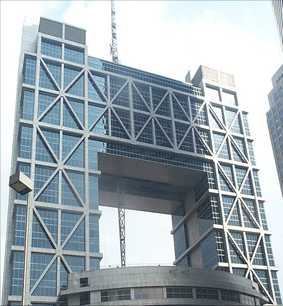HONG KONG (Dow Jones Investment Banker) – The Royal Bank of Scotland’s and Citi’s announcements this week that they had joined the rather exclusive list of foreign banks trying to crack the booming market for underwriting in China merely points up the limited inroads made so far by most of the would-be entrants. If anything, the advantage tends to run increasingly in favor of domestic Chinese underwriters.
The allure of the market is plain. The A share primary market on the Mainland continues to expand, with IPO volumes greater than in any other market worldwide in 2010: almost US$68 billion, according to the World Federation of Exchanges. That was about twice the IPO volume on the New York Stock Exchange and Nasdaq combined.
Despite their formidable global networks, the foreign players’ market shares and the number of transactions they have bookrun have remained modest, while competition from the major domestic brokers has intensified.
For several years, UBS and Goldman Sachs were the only foreign brokers allowed to operate in China. Since 2007 they have been bookrunners on nine and two IPOs, respectively, according to Dealogic, representing US$7.4 billion and US$1.4 billion. Over that period, UBS ranks as the 6th most active bookrunner by value, while Goldman’s ranking is only 27th.

But over the last 12 months, Dealogic reports that UBS ranked as only the 15th largest bookrunner of A share IPOs, with a market share of 2.7%. Deutsche Bank ranked 19th, although it acted as a bookrunner on five transactions in that time — more than any other foreign broker. Credit Suisse ranked 39th.
There are a number of reasons for this relatively subdued track record.
First, the market is becoming more concentrated. The top ten bookrunners, all of them Chinese, have had a combined market share of 56.7% by value since May 2010.
Second, some domestic brokers have considerable manpower at their disposal. Most crucially, the larger ones have between five and 10 times as many licensed sponsors on staff as the foreign joint ventures. Since a sponsor is required for every transaction, and no sponsor can work on more than two IPOs at the same time, the local firms have much greater deal capacity.
Third, the influence that foreign brokers can have on their Chinese operations is necessarily limited. Most JVs are two-thirds owned by their Chinese partners. UBS’s operation is a notable exception as the Swiss firm has secured full management, although not financial, control, in addition to primary and secondary licenses.
Lastly, Chinese brokers have wisened up. Those owned by commercial banks are increasingly able to leverage longstanding lending relationships, and to now hire experienced internationally-trained bankers – sometimes matching compensation levels offered by the bulge bracket. The strength of their talent is also evident in the inroads the Chinese firms have made in Hong Kong’s ECM space.
With the exception of Morgan Stanley’s early – but ultimately doomed – cooperation with China International Capital Corp., Goldman Sachs had the first mover advantage when it established a joint venture with Beijing Gao Hua Securities Company Ltd., a full-service domestic securities firm, in 2004. UBS followed in December 2006, when it received approval from the China Securities Regulatory Commission to form UBS Securities Co. Ltd., which now operates a number of trading outlets in Beijing, Shanghai, Shenzhen and Guangzhou.
The rest are relative newcomers. Credit Suisse’s joint venture with Founder Securities (itself said to be planning a listing in Shanghai soon) was not granted until late 2008, while Deutsche Bank’s tie-up with Shanxi Securities (renamed Zhong De Securities Ltd.) was approved in early 2009. Last year Morgan Stanley sold its 34% stake in CICC, having earlier terminated their rocky, 15-year tie-up, and established a JV with Huaxin Securities. Similarly, JPMorgan only secured approval for its own joint-venture with First Capital Securities in December 2010.
According to David Chin, Head of Investment Banking, Asia at UBS, “China’s domestic capital market obviously has huge potential, but it requires critical mass, a strong coverage network, and strong government relationships in order to support business development — all of which take time to build.”
The newcomers have their work cut out for them.
(Philippe Espinasse worked as an investment banker in the U.S., Europe and Asia for more than 19 years and now writes and works as an independent consultant in Hong Kong. Visit his website at https://www.ipo-book.com. Readers should be aware that Philippe may own securities related to companies he writes about, may act as a consultant to companies he mentions and may know individuals cited in his articles. To comment on this column, please email [email protected]).
[This article was originally published on Dow Jones Investment Banker on 1 June 2011 and is reproduced with permission. It also appeared on WSJ.com, the website of The Wall Street Journal.]
Copyright (c) 2011, Dow Jones & Company, Inc.
